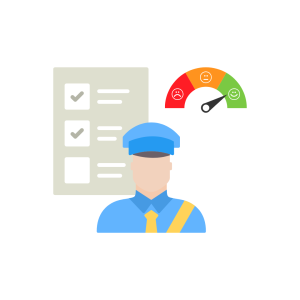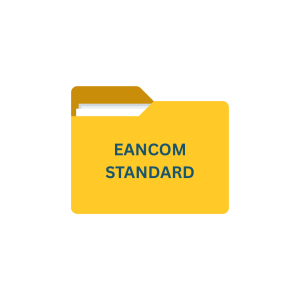Introduction
Electronic Data Interchange (EDI) is the backbone of modern B2B transactions.
It automates the exchange of business documents, reducing manual effort, improving accuracy, and enhancing supply chain efficiency.
But what if your EDI system isn’t doing its job effectively?
A poorly performing EDI system can lead to delays, compliance issues, and lost revenue. If you’re constantly dealing with errors, downtime, or integration nightmares, it may be time to upgrade to a new EDI solution.
10 Biggest Signs Your EDI System is Holding Your Business Back
1. Frequent Errors in Transactions
If your EDI system constantly produces errors, it’s a clear red flag. Errors can include:
- Incorrect data formatting (mismatched fields, missing values)
- Duplicate transactions leading to overcharges or incorrect inventory records
- Failed transmissions due to compatibility issues with trading partners
Fix It:
Modern EDI solutions, like Commport EDI, offer built-in validation checks to prevent errors before transactions are processed. Look for a solution that supports automated error detection and correction.
2. Manual Intervention Is Still Required
EDI is supposed to automate processes, yet many businesses still rely on manual checks and data re-entry. If your team spends too much time fixing errors, reprocessing transactions, or manually updating records, your system isn’t doing its job.
Fix It:
Switch to an intelligent EDI system that automates document validation, mapping, and error resolution. Solutions like Commport Cloud EDI offer seamless automation with minimal human intervention.
3. Slow Processing Times
Are your transactions taking too long to process? Slow EDI performance can lead to shipment delays, stock shortages, and poor customer experience.
Fix It:
- Optimize your EDI infrastructure to handle high transaction volumes.
- Consider cloud-based EDI for faster processing and real-time data exchange.
- Upgrade to a Value-Added Network (VAN) like Commport VAN for reliable, high-speed data transmission.
4. Limited Integration with Your ERP and Other Systems
A modern EDI system should integrate smoothly with ERP, WMS, TMS, and accounting systems. If your EDI software doesn’t sync with your existing platforms, you’re wasting time with manual updates and increasing the risk of errors.
Fix It:
Choose an EDI solution with robust API and ERP connectors. Commport’s EDI solutions integrate with major ERP systems like SAP, NetSuite, Microsoft Dynamics, and more.
5. High Costs with No ROI
Are you paying too much for an underperforming EDI system? High transaction fees, expensive maintenance, and hidden costs add up—without delivering value.
Fix It:
- Opt for a cost-effective, cloud-based EDI solution.
- Compare pricing models: Look for pay-as-you-go or scalable pricing.
- Evaluate the total cost of ownership (TCO) before choosing a provider.
6. Your Trading Partners Keep Complaining
If your suppliers and customers frequently report missing orders, incorrect invoices, or delayed acknowledgments, your EDI system is likely at fault. Poor performance can damage relationships and even cost you contracts.
Fix It:
- Ensure your EDI meets industry standards (X12, EDIFACT, etc.).
- Implement real-time monitoring to detect failed transactions before they impact your partners.
- Upgrade to a reliable EDI provider like Commport for seamless partner communication.
7. Lack of Visibility and Reporting
Do you struggle to track your EDI transactions? Lack of real-time visibility can cause delays, compliance risks, and financial losses.
Fix It:
Look for an EDI system with:
✅ Real-time tracking of transactions
✅ Customizable dashboards with analytics
✅ Automated alerts for failed transactions
Commport’s EDI solutions offer detailed reporting and analytics, giving you full visibility into your supply chain operations.
8. Outdated Technology and Poor Scalability
If your EDI system is 10+ years old, it may be running on outdated technology that can’t handle modern business demands. Legacy systems often lack cloud capabilities, security updates, and flexibility.
Fix It:
- Migrate to a modern, cloud-based EDI solution.
- Ensure your system scales with your business growth.
- Upgrade to AI-driven EDI analytics for better forecasting and decision-making.
9. Security and Compliance Risks
EDI transactions contain sensitive business data. If your system lacks encryption, compliance certifications, or secure transmission protocols, you’re at risk of data breaches and non-compliance fines.
Fix It:
Ensure your EDI provider meets:
✅ GDPR, and SOC 2 compliance
✅ Secure encryption protocols (AS2, SFTP, HTTPS)
✅ Disaster recovery and backup solutions
Commport’s fully secure EDI solutions protect your data and ensure compliance with industry standards.
10. No Support or Slow Customer Service
If you’re constantly struggling with EDI issues and can’t reach support when you need it, it’s time for a change. Poor customer service can lead to costly downtime and operational disruptions.
Fix It:
Choose an EDI provider with:
✅ 24/7 technical support
✅ Dedicated account managers
✅ Fast response times
Commport offers best-in-class EDI support, ensuring your business runs smoothly without interruptions.
Is It Time to Upgrade Your EDI System?
If you recognize any of these signs, your EDI system is likely holding your business back. Investing in a modern, cloud-based, and fully integrated EDI solution will help you:
✔ Reduce errors and manual work
✔ Enhance efficiency and speed
✔ Improve compliance and security
✔ Scale with your business growth
✔ Save costs and increase ROI
Learn more about integrated EDI benefits
Why Choose Commport EDI Solutions?
Commport Communications offers powerful, flexible, and cost-effective EDI solutions tailored to your business needs. Whether you need EDI translation services, VAN solutions, GDSN integration, or full automation, Commport has you covered.
👉 Ready to upgrade? Learn more about Commport EDI Solutions and take your business to the next level.
Want to know more about Commport EDI Solutions?
Download: EDI Buyers Guide
Unlock the full potential of your supply chain with our comprehensive EDI Buyer's Guide — your first step towards seamless, efficient, and error-free transactions
Frequently Asked Questions
Signs of an underperforming EDI system include slow processing times, frequent errors, difficulties in scaling with business growth, and challenges in integrating with other systems. Monitoring these aspects can help identify potential issues.
Slow processing times can indicate inefficiencies in data exchange, leading to delays in transactions and order fulfillment. It hampers the agility of the supply chain, affecting overall business responsiveness.
High error frequency suggests a lack of data accuracy and reliability in the EDI system. Frequent errors can lead to disruptions in supply chain processes, impacting relationships with trading partners and affecting the overall efficiency of the business.
Scalability is crucial for an EDI system to accommodate business growth. If the system cannot scale with increased transaction volumes or additional trading partners, it may lead to performance issues and hinder the adaptability of the business.
Integration challenges can lead to difficulties in connecting the EDI system with other business applications and systems. Seamless integration is essential for a cohesive and efficient flow of data across different aspects of the business, contributing to overall operational efficiency.





